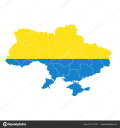UKRAINE: The Russia-Ukraine crisis is creating an energy predicament

By Simon Henderson, opinion contributor — 01/24/22 11:30 AM EST
The views expressed by contributors are their own and not the view of The Hill
Courtesy of The Hill (website: https://thehill.com)
This coming week could be rich in weather metaphors. Dark clouds hover over Ukraine and the markets for oil and natural gas. In fact, let me be the first to say it: It could be a “perfect storm.”
The Ukraine crisis may appear to be all about President Putin of Russia and his outsized ego, but his big stick isn’t just his 100,000 troops and armor near the border. Rather, it is natural gas, on which Ukraine depends upon Russia to supply, along with several other European countries that buy gas from Russia delivered by pipelines running across Ukraine.
In fact, about 40 percent of natural gas consumed in Europe comes from Russia. And this dominance is enhanced by the major customer being Germany, which explains why it is being marked “absent” from most of the diplomatic pressure that is aimed at Moscow. By all means, allow yourself a wry smile about Berlin’s history, but the result is that British military transports avoided flying through German air space last week to deliver anti-tank missiles to Ukraine. More such munitions are coming from the U.S. but their flight paths are not clear. ADVERTISEMENT
A side lesson in political realities: Germany’s particular dependence on Russian natural gas is also a consequence of going “green.” The country has moved away from nuclear power and coal to generate electricity. Natural gas was supposedly the solution. Russia has been a reliable supplier, but the real cost is only now becoming apparent to many.
Meanwhile, oil prices have been nudging $90 per barrel and the headline $100 figure is no longer a remote possibility. That’s good for traders and Russia, among others. For ordinary buyers at the pump, aka the American electorate, it may be verging on challenging, if not catastrophic.
All these ingredients should be focusing the attention of the White House, although President Biden’s mysterious use last week of the phrase “minor incursion” has confused many, including U.S. allies, about what his policy is. In such tense circumstances, attempts at explanation or spin don’t really work.
We are left hoping for the best — or any lucky break. Perhaps the Russian soldiers living in heated tents near frontlines will be particularly vulnerable to COVID. Could the gas-rich Gulf state of Qatar, whose emir is reportedly coming to Washington in the next few days, provide enough extra shiploads of liquefied gas to make a difference to the supply equation? Perhaps it is going to be warm here for a few weeks, which would open up the possibility of extra exports to Europe of American natural gas.
We are facing an unusual event: An energy-centric crisis that isn’t Middle East-focused. But that is not to say it won’t have implications for that region. High oil prices are good for oil-rich countries and bad, i.e. destabilizing, for those that missed out on hydrocarbon wealth. Sanctions-hit, but oil- and gas-wealthy, Iran will benefit, all the more so if it is perceived to be withstanding American pressure to restrict its nuclear activities. Talks in Vienna seem to be concluding without agreement.
Salvation by Saudi Arabia — the stock solution to many energy crises in the past — is unlikely. Pumping at record levels, its ability to produce even more oil in the short term is limited. Instead, perhaps worryingly, it is continuing to talk about diversifying its economy away from oil. Oil Minister Prince Abdulaziz bin Salman told the virtual Davos Economic Forum last week about the kingdom’s plans to use nuclear energy to produce “pink hydrogen,” a futuristic fuel. Let’s hope Saudi Arabia’s wider nuclear plans are less ambiguous than Iran’s.
Simon Henderson is the Baker Fellow and director of the Bernstein Program on Gulf and Energy Policy at the Washington Institute for Near East Policy. Follow him on Twitter @shendersongulf.
Link to the original article: The Russia-Ukraine crisis is creating an energy predicament
- Ci sono 0 contributi al forum. - Policy sui Forum -